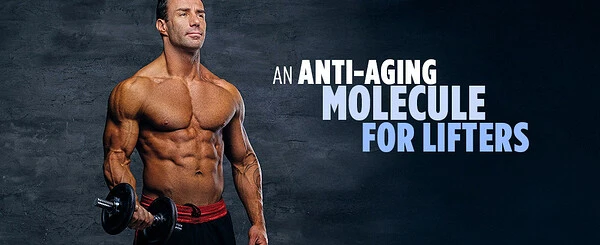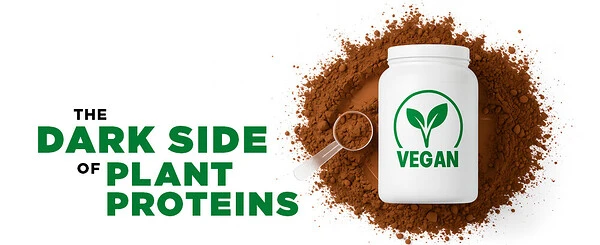Unveiling the Secret to Slower Aging: Mastering Hormonal Balance
Introduction
Do you aspire to age at a slower pace, maintain a youthful appearance, and uphold lifelong health? The key lies in taking command of a specific hormone.
When asked about your age, you likely respond in terms of chronological years. However, this measure lacks precision. What we refer to as chronological age is merely a numerical count of years lived. In contrast, biological age reveals the true state of your body's aging process.
For over a decade, DNA methylation clocks have enabled us to gauge our genuine biological ages. Now, a novel approach has emerged: a blood test integrated with artificial intelligence. Despite its novelty, this method is already yielding astonishing insights.
Understanding the Difference: Chronological vs. Biological Age
It's a common observation that some 40 - year - olds exhibit the appearance and vitality of 30 - year - olds, while others seem and feel more like 50. Accelerated biological aging is manifested through a plethora of external and internal signs. Externally, wrinkles become more prominent, and fatigue sets in. Internally, hormonal imbalances occur, inflammation rises, and telomeres, the protective caps at the ends of chromosomes, shorten.
When biological aging accelerates, not only do you look older, but your organs also function as if they are older. Your body deteriorates at a rate faster than what your chronological age would suggest. Consequently, you are more prone to developing "age - related" health issues earlier, and there is a higher probability of a shorter lifespan. Fortunately, it is possible to reverse the biological aging trend.
The New A.I. Model
In a recent Japanese study, researchers harnessed the power of artificial intelligence to analyze blood samples and accurately determine the actual biological age.
Blood samples were collected from 148 individuals ranging in age from 20 to 73. These samples were then analyzed for 22 different steroid hormones. Subsequently, a deep neural network (DNN) model was developed, incorporating steroid metabolism pathways. This innovation marks the first A.I. model to account for the intricate interactions between different steroid molecules.
The study's most significant finding was that cortisol emerged as the most potent predictor of biological age. When cortisol levels doubled, the predicted biological age increased by 1.5 times. In essence, chronic stress expedites the aging process. As the researchers put it, cortisol, a stress - related hormone, causes "cumulative physiological wear and tear."
Strategies to Counteract Excess Cortisol
As previously discussed, biological aging can be slowed through regular exercise, adequate sleep, refraining from smoking, and maintaining a lean physique. However, managing chronic stress and excessive cortisol levels poses a more complex challenge. Life is inherently stressful, and daily hour - long meditation sessions are neither feasible nor appealing to most individuals. Nevertheless, there are fundamental steps we can take to help our bodies better cope with stress.
Supplements for Cortisol Control
Several supplements can assist in regulating and curbing excessive cortisol levels. They typically achieve this by either supporting the body's stress response or regulating the hypothalamic - pituitary - adrenal (HPA) axis. Two supplements stand out in this regard: omega - 3 fatty acids and magnesium.
Fish Oil
Omega - 3 fatty acids, specifically eicosapentaenoic acid (EPA) and docosahexaenoic acid (DHA), possess anti - inflammatory properties and are effective in reducing cortisol levels. A study published in Brain, Behavior, and Immunity demonstrated that omega - 3 supplementation mitigated cortisol responses in adults exposed to psychological stress. In the study, stressed - out medical students were given a public - speaking challenge. Those who consumed 2500 mg of fish oil prior to the challenge showed a 14% decrease in cortisol levels. More recent research on omega - 3s and anxiety indicates that, while these results were promising, a higher dosage might have been even more effective.
To prevent omega - 3 deficiency and decelerate biological aging, it is recommended to take 4200 mg of fish oil daily, with a preference for a higher DHA content compared to EPA. Opt for a formula containing caprylocaproyl polyoxyl - 8 glyceride, a solubilizer commonly used by pharmaceutical companies to enhance bioavailability. An example is three softgels of Flameout DHA - Rich Fish Oil (available for purchase on Amazon).
Magnesium
A magnesium deficiency or insufficiency, which is prevalent in modern populations, is closely associated with anxiety and elevated cortisol levels. Magnesium plays a crucial role in supporting the regulation of the nervous system. By improving sleep quality and alleviating stress, it helps to lower cortisol levels. A 2017 review in Nutrients also emphasized its role in regulating the HPA axis.
To prevent magnesium deficiency and manage biological aging, a daily intake of 400 mg of Albion - chelated magnesium is recommended, preferably taken at night. This is the dosage and type found in Elitepro Vital Minerals (available for purchase on Amazon).
Reference
Wang, et al. Biological age prediction using a DNN model based on pathways of steroidogenesis, Science Advances, 14 Mar 2025, Vol 11, Issue 11.





